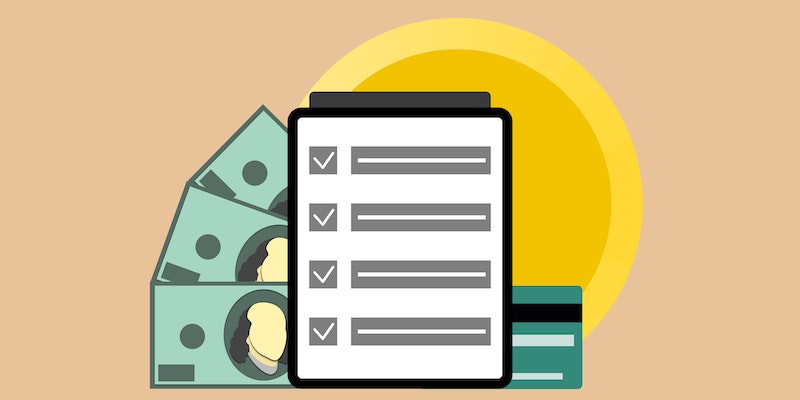Busting Debt: Is a Personal Loan the Right Choice for Paying off Credit Card Due
Susan Kelly
Feb 05, 2024
When it comes to reducing your debt, sometimes a personal loan can be the most effective solution. Not only is it a way of transferring all your outstanding credit card balances into one loan with lower monthly payments and interest rates; but in some cases you may also be able to get funds for other related expenses such as home repair or consolidations loans. If you are dealing with a tight budget and mounting due dates from numerous creditors, it can have significant advantages over paying off each of those debts separately—but before taking the plunge, there are important factors that must be taken into consideration in order determine whether or not this avenue makes financial sense for you.
We'll explore these points and more as we dive deeper into our discussion on how personal loans work, their potential benefits (as well as risks!) and how to identify if this could really be an effective solution for eliminating that overwhelming debt once and for all!
Understand the Pros and Cons of Taking Out a Personal Loan:

Pros:
- Low Interest Rates: A personal loan may have a lower interest rate than the average credit card debt, allowing you to pay off your due balance more quickly.
- Fast Approval and Disbursement: Compared to more traditional methods of borrowing money, personal loans usually offer a faster turnaround time for approval and disbursement of funds.
- Consolidation: The ability to consolidate high-interest debt into one single loan can help simplify the repayment process and make it easier for you manage your finances.
Cons:
- Default Risk: Like other forms of debt, if you are not able to keep up with your payments, defaulting on a personal loan can have longterm consequences such as lower credit scores and increased collection efforts.
- Length of Loan: Depending on the size of your loan, you may be looking at a longer repayment term than other debt solutions—which could mean making monthly payments for several years before being debt free.
- Upfront Fees: Some lenders will require an upfront fee which is added to the total amount borrowed; this should also be taken into account when calculating the actual cost of the loan.
Consider Your Financial Goals When Deciding Whether to Take Out a Personal Loan:
When it comes to personal loans, it's important to consider your financial goals before making a decision. Are you looking to consolidate debt, finance a large purchase, or cover unexpected expenses? Taking out a personal loan can be a helpful tool in achieving these goals, but it's crucial to determine whether the associated interest rates and fees will benefit you in the long run. Before applying, carefully assess your financial situation and make a plan for paying back the loan. With the right strategy in place, a personal loan can be a useful tool for reaching your financial objectives.
How to Choose the Right Lender for a Personal Loan?

Look for lenders that offer fixed rates, as they provide a level of certainty and stability in your repayment plan. Additionally, consider the lender's reputation and customer service experience, as you want to work with a company that is reliable and responsive to your needs.
Finally, consider any additional fees or charges associated with the loan, such as origination fees or prepayment penalties, as they can significantly impact the overall cost of your loan.
Calculate How Much You Can Afford in Monthly Payments?
We all dream of owning that perfect car or home, but it's important to be realistic and consider what we can actually afford. That's why calculating your monthly payments is crucial. It gives you a clear picture of how much money you'll need to set aside each month to pay off your loan, and to ensure that the loan doesn't become a burden on your finances. Knowing exactly how much you can afford in monthly payments will help you make informed decisions and avoid taking on more debt than you can handle.
It may take a bit of effort to crunch the numbers, but it will pay off in the long run when you can confidently say that you can comfortably afford your car or home.
Conclusion:
Taking out a personal loan can be an effective solution for reducing debt, but it's important to carefully weigh the pros and cons before deciding if this is the best route for you. Consider your financial goals, shop around for competitive rates, and calculate what you can afford in monthly payments so that you make an informed decision. With the right strategy in place, a personal loan can be the key to unlocking a debt-free future.
But for those who are still unsure, speaking with a financial expert or credit counselor may help uncover other options that could be more suitable for your particular situation. Whatever you decide, it’s always important to take the time to properly research and assess all of your available resources before making any financial decision.
FAQs:
Are there different types of personal loans?
Yes! Different lenders may offer various types of personal loans including secured and unsecured loans, fixed-rate or variable interest rate loans, and short-term or long-term loans. It's important to take the time to compare different lenders offering personal loans in order to select the best option for your needs.
What determines my eligibility for a personal loan?
Most lenders will take into account factors such as your credit score, income, assets and debts when determining eligibility. They may also look at additional factors such as employment history or residency status.







